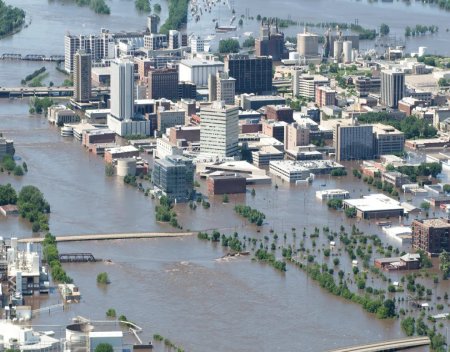
Does How My Home Was Built Affect My Flood Insurance Rates?
The requirements for flood insurance for a house can vary depending on several factors, including its location, whether it's in a flood zone, and the mortgage lender's policies.
Here are some general guidelines regarding flood insurance requirements for houses: Flood Zone Determination: Properties located in high-risk flood zones designated by the Federal Emergency Management Agency (FEMA) are typically required to have flood insurance if they have a mortgage from a federally regulated or insured lender.
These high-risk flood zones are identified as Special Flood Hazard Areas (SFHAs) on FEMA flood maps.
Mortgage Lender Requirements: Many mortgage lenders require borrowers to purchase flood insurance if the property is located in a high-risk flood zone.
This requirement helps protect the lender's investment in case the property is damaged or destroyed by flooding.
National Flood Insurance Program (NFIP): The NFIP is a federal program that offers flood insurance to homeowners, renters, and businesses in participating communities.
If your house is located in a participating community and is in a high-risk flood zone, you may be required to purchase flood insurance through the NFIP to satisfy lender requirements.
Private Flood Insurance: In some cases, homeowners may have the option to purchase flood insurance from private insurers instead of the NFIP.
However, private flood insurance policies must meet certain requirements to be accepted by mortgage lenders.
Optional Coverage: Even if your house is not located in a high-risk flood zone and flood insurance is not required by your lender, it's still a good idea to consider purchasing coverage.
Flooding can occur in any area, and standard homeowners insurance policies typically do not cover flood damage.
Flood Insurance Costs: The cost of flood insurance can vary based on factors such as the property's flood risk, the coverage amount, and the deductible.
Premiums for NFIP policies are standardized based on factors such as the property's location, age, and construction type.
It's essential to consult with your insurance agent or lender to understand the specific flood insurance requirements for your house and to determine the appropriate coverage to protect your property against flood damage.
We contacted Mr. Holt for an estimate via email over the weekend prior to a closing on a property, hoping for a response on the following Monday to take with us with confidence in being insured at the settlement table on a Tuesday. He exceeded our expectations not once but in readily responding to the initial request and then to follow-up questions all during the weekend frenzy that occurs before closing. "Impressive and responsive customer service," for sure!
I have no problem giving you an A1 reference for taking care of the flood policies for me and Diane. I appreciate you working with the mortgage company: the surveyor and our previous agent. The result was a 75% reduction in our flood insurance premiums!
I have known Tim for many years and he is a man with great integrity, work ethic and one of the nicest persons I know. Over the years Tim has provided insurance counseling and advice to our company, for myself personally, as well as to our clients. Recently Tim, took time to analyze our flood insurance policy and he was able to make some excellent recommendations. Our flood insurance costs are now less and we have much better coverage. I recommend Tim to anyone without hesitation or reservation.